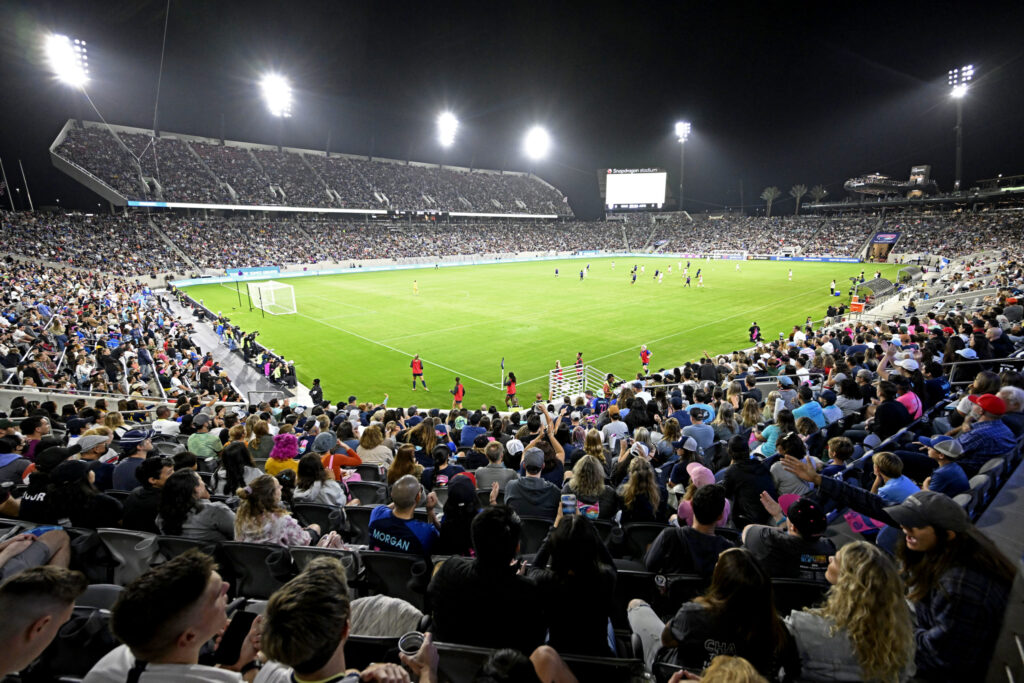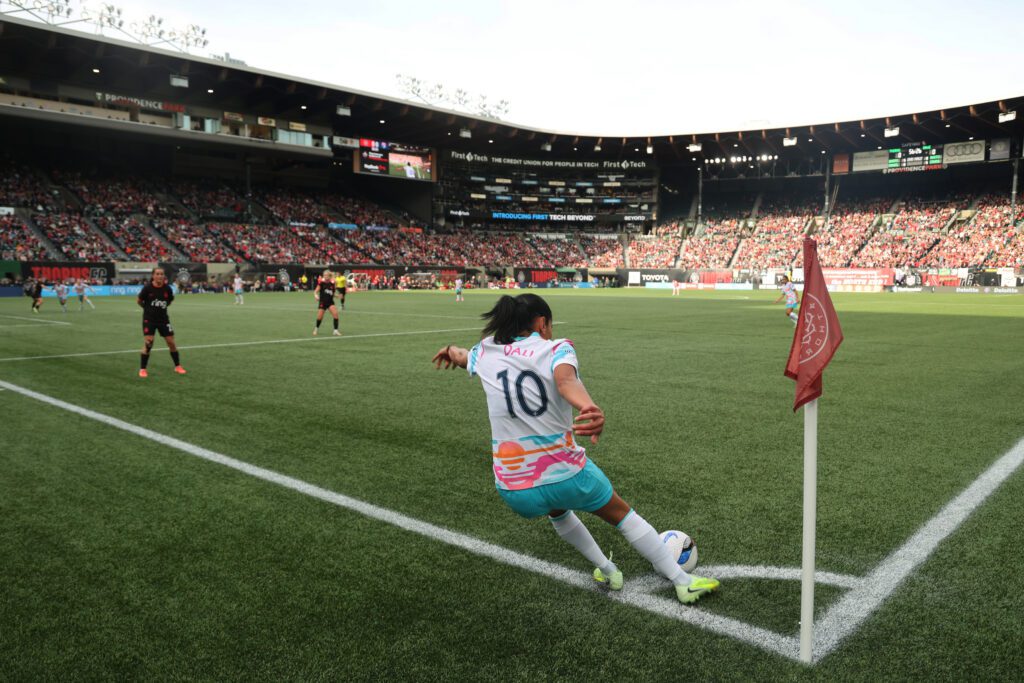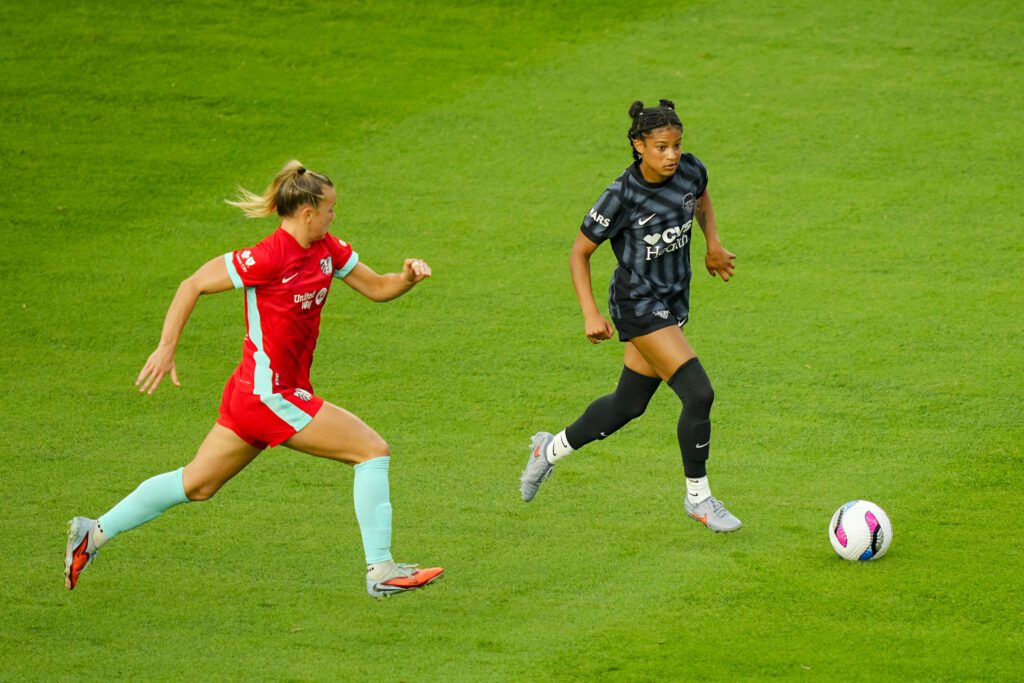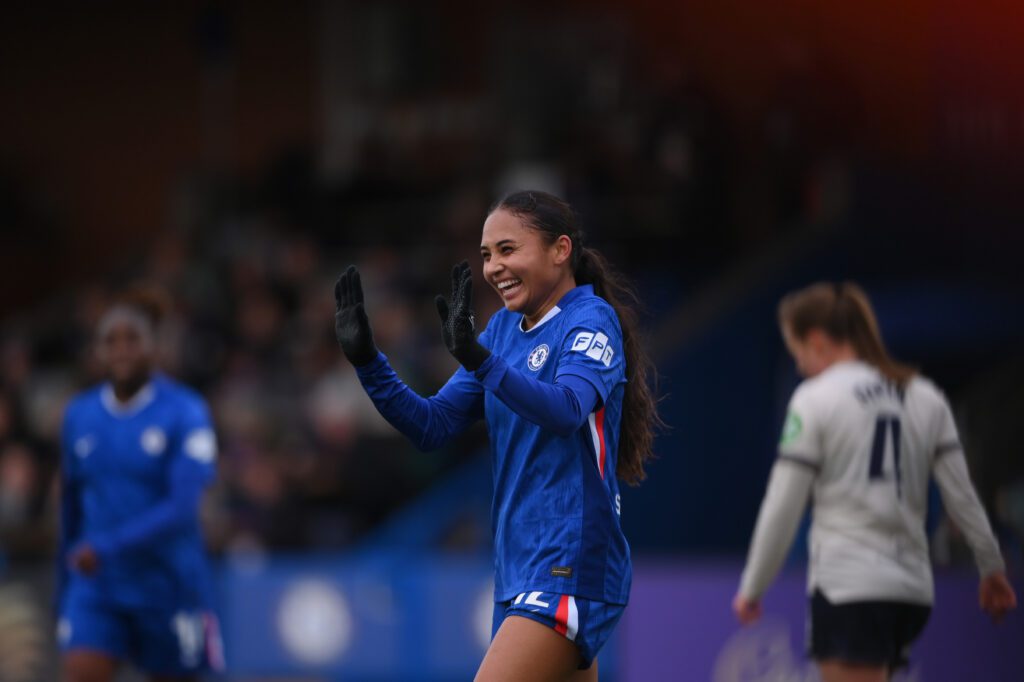The 2022 calendar year introduced what is likely only the beginning of monumental change to professional women’s soccer in the U.S. But the process of identifying past wrongdoing in the NWSL possibly found its end on Wednesday, with the release of the NWSL and NWSLPA’s joint investigation into misconduct only a few months after Sally Q. Yates announced her own findings on the league’s culture of systemic abuse.
Action steps have been slightly slower to follow. The Yates report changed everything about how the public perceived the first 10 years of the NWSL’s existence, but it didn’t actually recommend any immediate changes in personnel. The report questioned the isolated use of SafeSport and recommended policy and process shifts to create a stronger infrastructure of transparency and care, but while it named bad actors, it deferred to the league itself on next steps.
Simultaneously, the NWSL made fact-finding one of the main objectives of its own investigation. Commissioner Jessica Berman outlined a three-pronged process for next steps before the NWSL Championship in October: “First, seeking the truth, second, corrective action, and third, systemic reform.”
At the time, Berman said the NWSL was still operating in the first stage of that overall plan: finding the facts. For a league that has long had a nebulous relationship with the truth, processing massive amounts of vetted information is no small feat. Both the Yates report and the NWSL investigation detail the ways abusive behavior had been dismissed and covered up for many years and across the majority of clubs.
The Yates report went into detail about how half-truths and words of encouragement from Merritt Paulson allowed Paul Riley to move on from misconduct at the Portland Thorns to coach the Western New York Flash and then the North Carolina Courage. The NWSL investigation further tells the stories of non-disclosure agreements — tied to severance payments — that allowed coaches like Rory Dames and Christy Holly to walk away from their positions with their reputations contractually protected. By fighting the norms that have been in place for years, simply by bringing hard truths to light, the league is making progress.
The NWSL investigation also came with a set of recommendations at both the club and league level. That list includes proposed standards for staffing, especially in human resources, and a number of policy proposals. The NWSL will establish a non-fraternization policy “that will create clear rules regarding romantic and/or sexual relationships and/or encounters between players and staff,” according to the press release. The league will also increase vetting requirements beyond basic background checks and establish standards about alcohol use in social settings.
Those kinds of changes appear to fall into the third category of Berman’s stated outline: systemic reform. But it would be fair to wonder whether the second segment — corrective action — has been lost in the shuffle.
There have already been consequences to both the Yates report and the NWSL investigation. After being implicated in the Yates report for covering up Riley’s abuse, former Thorns general manager Gavin Wilkinson and president of soccer Mike Golub were fired in October, and Paulson has announced he is divesting the Thorns from the Timbers in order to sell the team. Chicago Red Stars owner Arnim Whisler, named extensively in both reports for fostering a toxic work environment, announced in early December that he is selling the club. Amanda Cromwell was suspended as coach of the Orlando Pride while under investigation for retaliation, and later terminated for cause after the allegations were substantiated.

But Wilkinson and Golub’s firings were club decisions, and Paulson and Whisler’s choices to sell were ostensibly voluntary. The NWSL has influenced owners to sell in the past. Last year, the Washington Spirit were removed from league governance until they reached a resolution to Steve Baldwin’s decisions as owner, at which point Baldwin elected to sell his stake in the club.
Had Paulson and Whisler further dragged their feet, it’s possible the Board of Governors would have made a push for their removal. It’s also possible that concerns over potential lawsuits or damaging acts of finger-pointing would have rendered them inert.
Regardless, other questions remain. And as fans look for signs of true change in leadership, they might currently find themselves disappointed.
The NWSL report named Huw Williams, former head coach of the Kansas City Current, for retaliating against players and coaching with a detrimental communication style. Players brought concerns to ownership in August 2021, but Williams still finished the season as head coach and spent 2022 in a different front-office role. Only after the release of Wednesday’s report did the Current admit that Williams no longer worked for the club as of November. The team also released a statement that did not acknowledge the decision-making behind his move to the front-office role.
Fans in Houston also saw the unsatisfying end to James Clarkson’s tenure as head coach, after a lengthy investigation ended with no detailed action items. Clarkson, suspended first in April and then named in the NWSL investigation for emotional misconduct and insensitivity, will simply have his current contract with the Dash expire at the end of 2022.

Even less action has been taken with Racing Louisville’s James O’Connor, who was named in the Yates report for misrepresenting the recommendations he received about Christy Holly before his hiring, and for failing to properly address complaints about Holly’s coaching and behavior. O’Connor served as Racing Louisville president until October, at which point the club began looking for a general manager to run Racing’s operations (O’Connor still runs the Louisville City FC side of the organization). As with Wilkinson and Golub, O’Connor’s future seems to hinge on a club decision, and for now the club appears to be sticking by their president.
Former USWNT manager and current San Diego Wave president Jill Ellis was also named in both reports for having received complaints about NWSL coaches during her tenure with the U.S. In the NWSL report, she specifically denied seeing a complaint from Christen Press about Dames. The Wave have yet to formally acknowledge Ellis’ involvement in their statements about either investigation.
In a functioning league ecosystem, the NWSL doesn’t have to meddle in club affairs, but multiple investigations call for further consequences. Systemic change can only come from corrective action, and eyes will be on Berman’s office for moral clarity before the 2023 preseason begins.
Claire Watkins is a Staff Writer at Just Women’s Sports. Follow her on Twitter @ScoutRipley.




